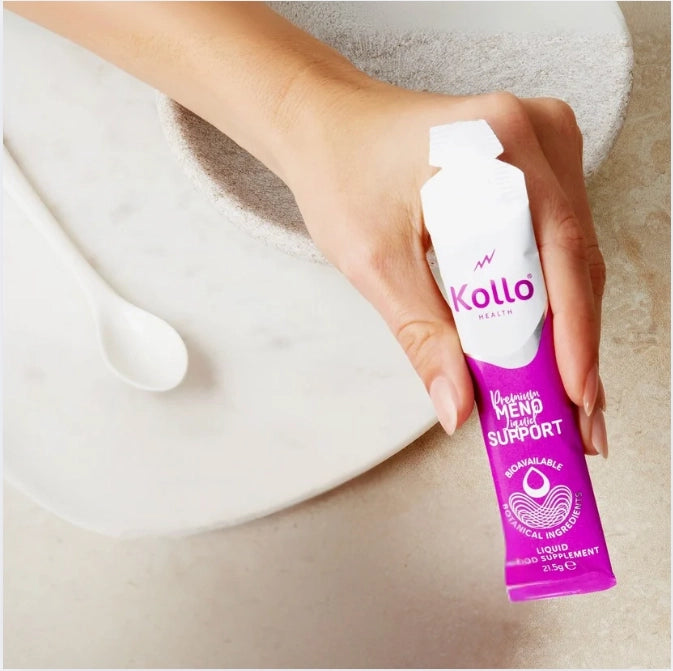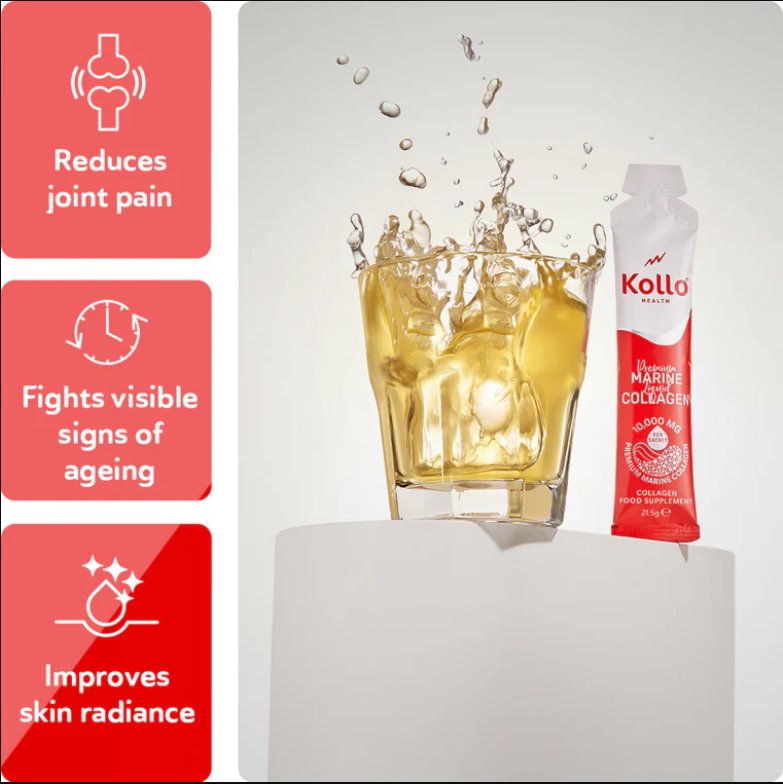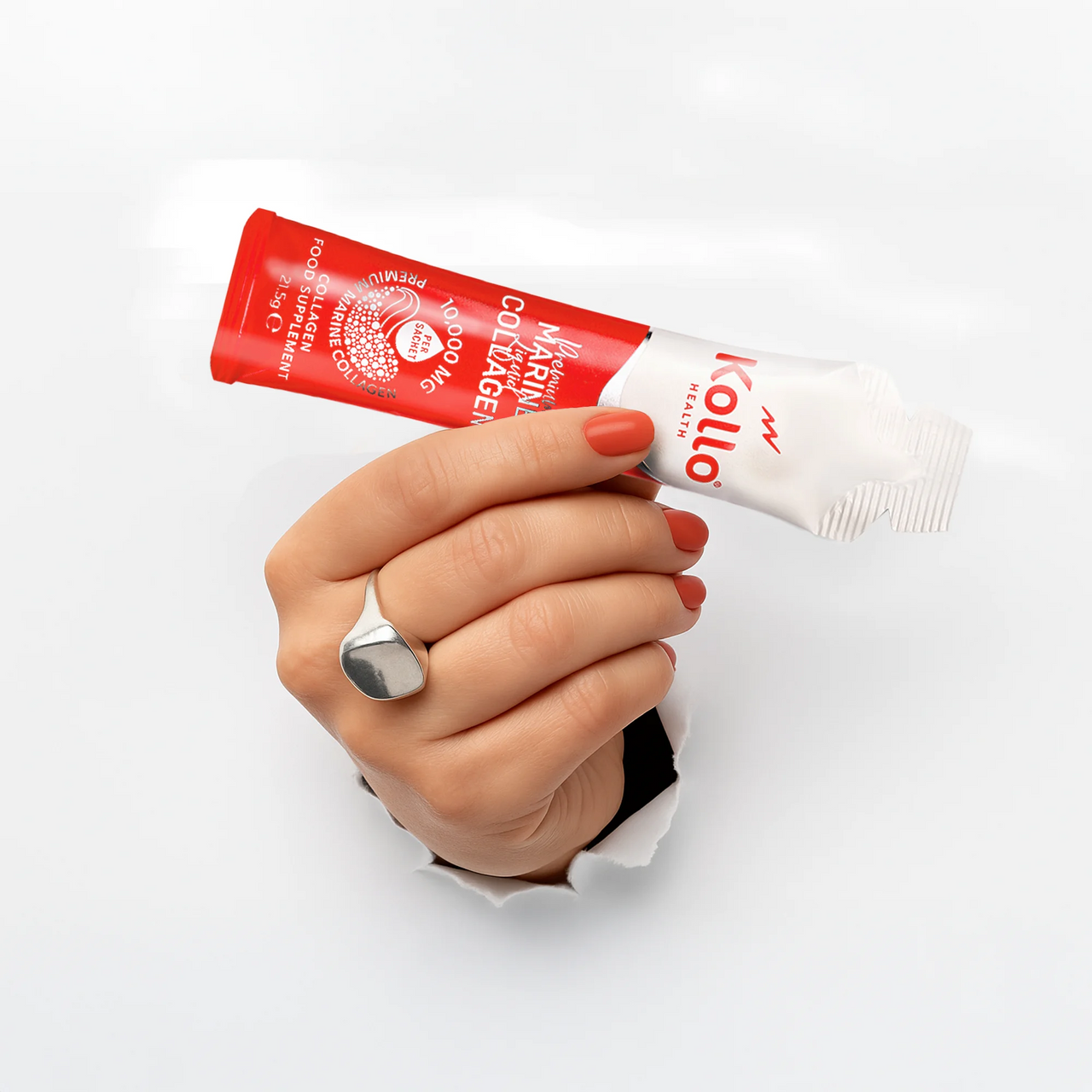Collagen, the most abundant protein in our bodies, plays a critical role in maintaining the strength and structure of bones. As we age, our body's natural collagen production declines, leading to a range of health concerns, including osteoporosis. Osteoporosis is a condition characterised by weakened bones and an increased risk of fractures. But can collagen supplementation help with osteoporosis? Let’s explore how collagen affects bone health and its potential role in managing osteoporosis.
How Can I Tell If I'm at Risk?
Understanding your risk for osteoporosis is the first step in prevention. While anyone can develop osteoporosis, certain factors increase your likelihood of experiencing it. Age, gender, and family history play a significant role, but lifestyle choices and other medical conditions also contribute. If you're concerned about osteoporosis, knowing the risk factors can guide you in taking preventive measures.
Risk factors include:
- Age: The risk increases significantly after age 50. As we get older, bone density naturally decreases, making bones more fragile.
- Gender: Women are more prone to osteoporosis due to hormonal changes during menopause. This loss of oestrogen accelerates bone loss and increases the risk of fractures.
- Family History: If your parents or grandparents had osteoporosis, you’re at a higher risk. Genetics play a significant role in determining your bone health throughout life.
- Body Weight: Those with a low body mass index (BMI) are more susceptible to bone loss. This is because lower body weight can lead to less mechanical stress on bones, which weakens them over time.
- Certain Medications: Long-term use of corticosteroids and other drugs can weaken bones. Medications like these interfere with the body's ability to absorb calcium, which is essential for bone health.
To assess your risk, consider these factors and discuss them with your healthcare provider. They can evaluate your bone density through a bone mineral density (BMD) test, which measures bone strength and helps identify osteoporosis early on.
How Common Are These Conditions?
Osteoporosis is more prevalent than many realise. Affecting millions worldwide, it leads to over 8.9 million fractures annually. As life expectancy rises, osteoporosis cases are expected to increase, making bone health a crucial public health concern.
Key statistics about osteoporosis:
- Global Prevalence: An estimated 200 million people worldwide suffer from osteoporosis. This includes a significant percentage of individuals in both developed and developing countries.
- Fracture Incidence: One in three women and one in five men over 50 will experience osteoporotic fractures. Fractures related to osteoporosis are most common in the spine, hip, and wrist.
- U.S. Numbers: In the United States, about 10 million people have osteoporosis, with another 44 million having low bone density, putting them at risk. This makes osteoporosis and low bone density significant public health concerns.
These statistics emphasise the importance of proactive bone health strategies, particularly as we age. Bone fractures caused by osteoporosis can drastically reduce the quality of life, leading to decreased mobility and independence.
How Does Collagen Work?

Collagen forms the building blocks of our bones, skin, and connective tissues. Its role in maintaining bone integrity is vital, as it helps create the structure that calcium and other minerals attach to, making bones strong. As collagen production declines with age, bones lose their density and become more fragile.
Supplementing with collagen may help by stimulating collagen synthesis in the body and providing the essential amino acids needed to build bone tissue.
Benefits of collagen for bone health include:
- Stimulates Osteoblasts: Collagen supplements may stimulate osteoblasts, the cells responsible for new bone formation. Osteoblasts help repair bone damage and maintain bone mass, reducing the risk of fractures.
- Increased Bone Mineral Density: Studies suggest collagen can increase bone mineral density, which strengthens bones. Stronger bones mean a reduced likelihood of breaks and fractures in older individuals.
- Improved Joint Health: In addition to bones, collagen also supports cartilage, which is vital for joint health. Healthier joints mean improved mobility and a lower risk of joint pain as you age.
By providing these benefits, collagen supplements can play a key role in maintaining and even improving bone health, especially in people at risk of or already dealing with osteoporosis.
How to Take Collagen Peptides
Collagen peptides are a form of hydrolysed collagen, meaning they are broken down into smaller, more easily absorbed particles. Taking collagen supplements regularly can help support bone health, but the method and dosage matter.
Steps to take collagen peptides effectively:
- Choose a High-Quality Supplement: Look for collagen peptides that are hydrolysed for better absorption. High-quality products will ensure you're getting the most out of each serving.
- Follow the Recommended Dosage: Most studies recommend a daily dose of 5-10 grams for optimal results. It's essential to stick to this dosage consistently to see long-term benefits.
- Mix with Beverages: Collagen peptides are flavourless and can easily be mixed into water, coffee, or smoothies. This versatility makes it easy to incorporate into your daily routine.
- Consistency is Key: Take collagen daily to see the best results over time. Regular intake ensures your body has a steady supply of collagen-building amino acids to maintain bone health.
Including collagen peptides in your daily routine can be as simple as adding a sachet to your morning beverage. Over time, consistent intake can support bone health, improve skin elasticity, and promote overall well-being.
Osteoporosis Treatments
Osteoporosis treatments aim to strengthen bones and reduce fracture risks. While collagen can be part of a bone health regimen, medical treatments for osteoporosis typically include medication, lifestyle changes, and dietary adjustments.
Common treatments include:
- Bisphosphonates: These medications slow bone loss and are often the first line of treatment. Bisphosphonates help preserve bone density and lower the risk of fractures.
- Hormone Replacement Therapy (HRT): For women, oestrogen therapy can help maintain bone density after menopause. By replacing lost oestrogen, HRT can help slow bone loss and reduce fracture risk.
- Calcium and Vitamin D Supplements: Both are essential for bone health and are commonly recommended. Vitamin D helps the body absorb calcium, which is critical for bone strength.
- Weight-Bearing Exercises: Strength training and weight-bearing exercises can help maintain bone strength. These exercises put stress on bones, encouraging them to remain strong and dense.
While treatments like bisphosphonates focus on preventing bone breakdown, collagen supplements can complement these efforts by promoting the formation of new bone tissue.
Ways to Help Maintain Bone Health

Maintaining bone health is about adopting a holistic approach, combining diet, exercise, and supplements like collagen. By supporting your body with the right nutrients and habits, you can significantly reduce your risk of osteoporosis.
Tips for maintaining bone health:
- Eat a Calcium-Rich Diet: Include dairy, leafy greens, and other foods to meet your daily calcium needs. Calcium is a key component of bone tissue, helping maintain bone density.
- Get Enough Vitamin D: Sunlight exposure and vitamin D-rich foods can help your body absorb calcium more effectively. Without enough vitamin D, even a calcium-rich diet may not fully support bone health.
- Exercise Regularly: Weight-bearing exercises, such as walking and strength training, are critical for bone health. These activities stimulate bone formation, helping you maintain or improve bone mass.
- Avoid Smoking and Excessive Alcohol: Both can weaken bones over time. Smoking interferes with calcium absorption, while excessive alcohol consumption disrupts bone remodelling.
Implementing these habits can help you build and maintain strong bones throughout your life, preventing the onset of osteoporosis.
5 Foods to Avoid for Osteoporosis
Diet plays a crucial role in bone health, and some foods can actually work against your efforts to strengthen your bones. Avoiding or limiting these foods can be a simple yet effective way to maintain bone density.
Foods to avoid include:
- High-Sodium Foods: Excess salt can lead to calcium loss in your urine. Over time, this can deplete the calcium stores in your bones, weakening them.
- Sugary Snacks: Foods high in sugar can inhibit calcium absorption. Sugary snacks can also contribute to weight gain, which can put additional strain on your bones and joints.
- Caffeine: In large amounts, caffeine can decrease calcium absorption. Reducing your caffeine intake can help ensure your body retains more of the calcium you consume.
- Soft Drinks: Phosphoric acid in sodas can interfere with calcium absorption. It's best to replace sugary soft drinks with healthier alternatives like water or milk.
- Alcohol: Excessive alcohol consumption can negatively affect bone health. It reduces your body's ability to produce bone cells and may increase your risk of fractures.
Limiting these foods helps ensure that your body retains more calcium, which is essential for building and maintaining strong bones.
What Type of Collagen Is Best for Osteoporosis?
There are several types of collagen, but not all are equally effective for bone health. Type I collagen is the most abundant in the human body and plays a key role in bone formation.
Best types of collagen for osteoporosis:
- Type I Collagen: Found in bones, skin, and tendons, it is crucial for bone strength. This type of collagen forms the matrix that supports bone mineralisation and structure.
- Type II Collagen: While more beneficial for cartilage and joints, it can also support overall connective tissue health. Including Type II collagen in your supplement regimen may improve joint and bone health together.
- Collagen Peptides: These are broken-down forms of collagen that are easier for the body to absorb and utilise. Collagen peptides provide a convenient way to ensure your body is getting the collagen it needs for optimal bone health.
Choosing the right type of collagen is important to ensure you're targeting bone health effectively. Type I collagen, in particular, is most beneficial for strengthening bones and reducing the risk of fractures.
Summary
Collagen plays a vital role in maintaining bone structure and can be a valuable tool in the fight against osteoporosis. While it’s not a standalone cure, combining collagen supplementation with other treatments and lifestyle changes can significantly improve bone health and reduce fracture risk. By taking a proactive approach with collagen for osteoporosis, regular exercise, and a healthy diet, you can help protect your bones as you age.







